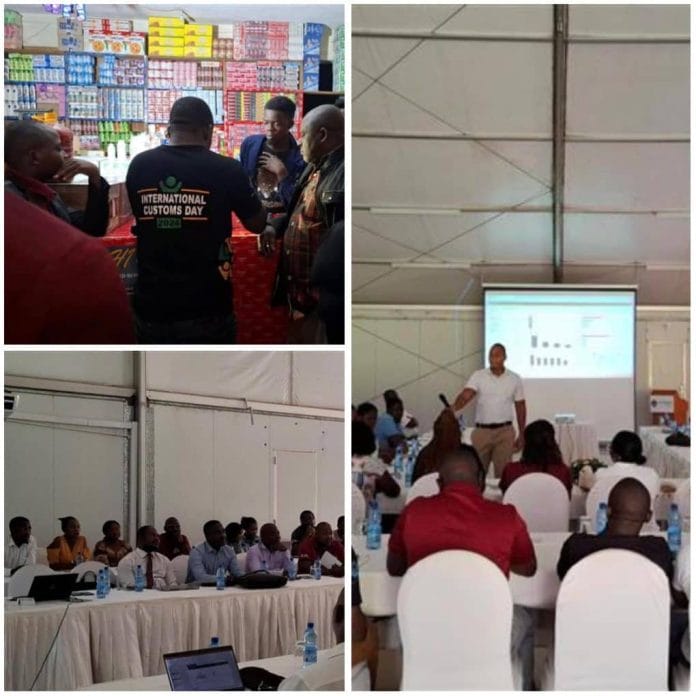LILONGWE-(MaraviPost)-Malawi is preparing for a major change in the way taxes are recorded and collected as the Malawi Revenue Authority (MRA) moves forward with the roll-out of the Electronic Invoicing System (EIS) in February 2026.
The rollout was initially scheduled for November 2025 but was postponed after taxpayers and key stakeholders requested more time to understand the system’s technical and operational requirements.
The MRA, which has long relied on Electronic Fiscal Devices (EFDs), describes the EIS as a major digital upgrade that is more efficient, user friendly, and cost effective.
According to MRA, the shift to the EIS is part of a broader effort to improve tax compliance and record keeping.
The system promises better accessibility and functionality for businesses of all sizes, aligning Malawi with a growing list of countries pursuing similar digital tax reforms.
For example, Uganda introduced its Electronic Fiscal Receipting and Invoicing System (EFRIS) earlier this year, while Poland’s KSeF and Saudi Arabia’s FATOORAH are also underway.
Tanzania’s Electronic Financial Data Management System (EFDMS), Vietnam’s e-invoicing platform, and Mauritius’ EBS reflect the same continental and global trend.
Across these nations, governments have recognised the severe losses caused by tax non-compliance in revenue collection.
In Malawi, the issue is especially pressing as we face a fiscal deficit of MK2.4 trillion, twice the budget for education (MK1.3 trillion) and nearly four times the allocation for health (MK714 billion).
The World Bank estimates that tax evasion alone costs Malawi about 12 percent of its GDP, a figure higher than Namibia’s by roughly three percentage points.
Combined with persistent corruption, these losses have significantly constrained public investment and service delivery.
Despite previous reform efforts, Malawi’s fiscal challenges have persisted for decades. But digital interventions like the EIS and the recently introduced Digital Excise Tax Stamps (Kalondola) offer a potential turning point for revenue management and transparency.
In 2024, the MRA signed a ten-year agreement with SICPA Malawi, a subsidiary of the Swiss-based SICPA SA, globally known for secure traceability and authentication technology.
The partnership introduced the Kalondola system to modernise excise tax collection and reinforce accountability in Malawi.
The SICPA technology behind Kalondola uses secure tax stamps combining material and digital security features.
It allows both authorities and consumers to verify product authenticity while helping detect illicit trade activities such as counterfeiting or smuggling.
The system improves oversight across the supply chain, particularly for excisable goods such as cigarettes, alcoholic beverages, bottled water, carbonated soft drinks, lotions & glycerines.
These categories have historically been vulnerable to under-declaration and illicit trade.
Castel Malawi, one of the country’s largest beverage producers, publicly supported the initiative, saying the digital excise tax stamps enable accurate revenue capture that can be reinvested in essential services and economic growth.
In a press statement, Castel Malawi Managing Director Thomas Reynaud emphasized the importance of consumer vigilance in the fight against counterfeit products, which he said pose serious health risks and undermine legal trade.
“Castel Malawi Limited urges all customers to remain alert and ensure that all spirits purchased are genuine and compliant with legal standards,” said Reynaud. “Authentic Castel products carry digital tax stamps, date stamps, and batch numbers, which are clear indicators of their legitimacy and regulatory compliance.”
In supporting digital tax reforms, economic and policy expert Dumbani Mzale notes the substantial economic and governance benefits that digital tax stamps can bring to public finance management, including increased revenue collection and the reduction of illicit trade.
Mzale said, “Digital tax stamps (Kalondola), particularly for excisable goods like alcohol and tobacco, help governments all over the world to effectively control and collect taxes.
By minimizing opportunities for fraud and tax evasion, the state can significantly boost its revenue streams, and Malawi could be no exception if this agenda could be implemented to the letter.”
He added, “For too long, Malawi has been a victim of counterfeit products, especially beer and other key consumables.
This has resulted in the country losing billions of Kwachas in potential tax revenue, money that could have helped reduce the gap between total government expenditure and total domestic revenue, which includes tax and non-tax revenue.”
By deploying both the EIS and Kalondola, the Government of Malawi is signalling a shift toward stronger controls, cleaner tax administration, and better protection of public resources and of consumers.
Moreover, this state-of-the art technology enables leveling the playing field for legitimate actors whose contribution to growth and development of the country is paramount, contrary to illicit traders.
If implemented effectively, these reforms could help move the country toward a more stable, predictable, and equitable public finance framework.
Discover more from The Maravi Post
Subscribe to get the latest posts sent to your email.



